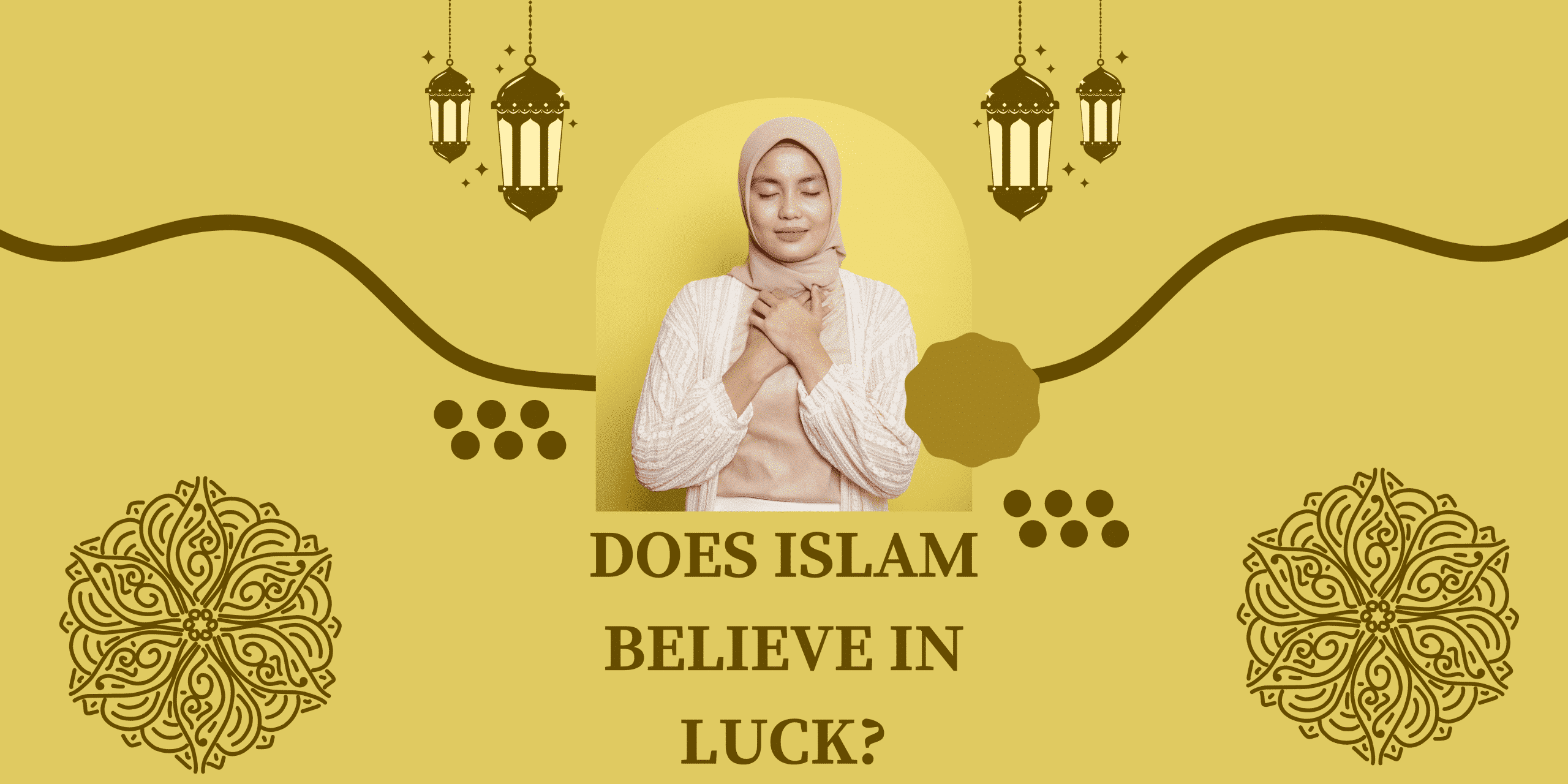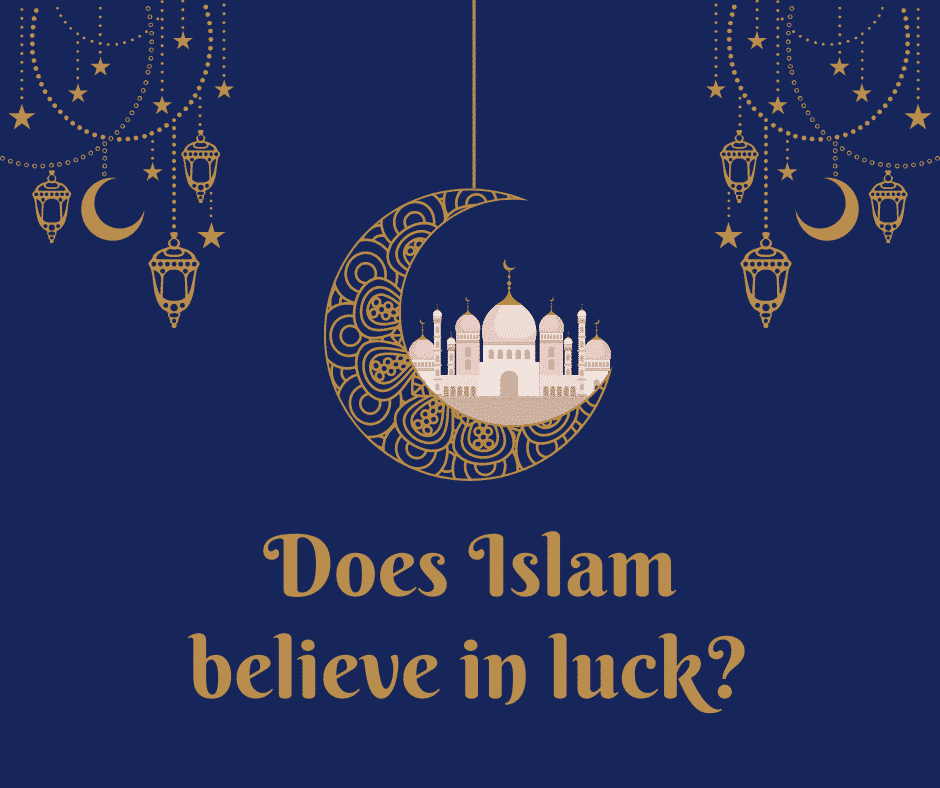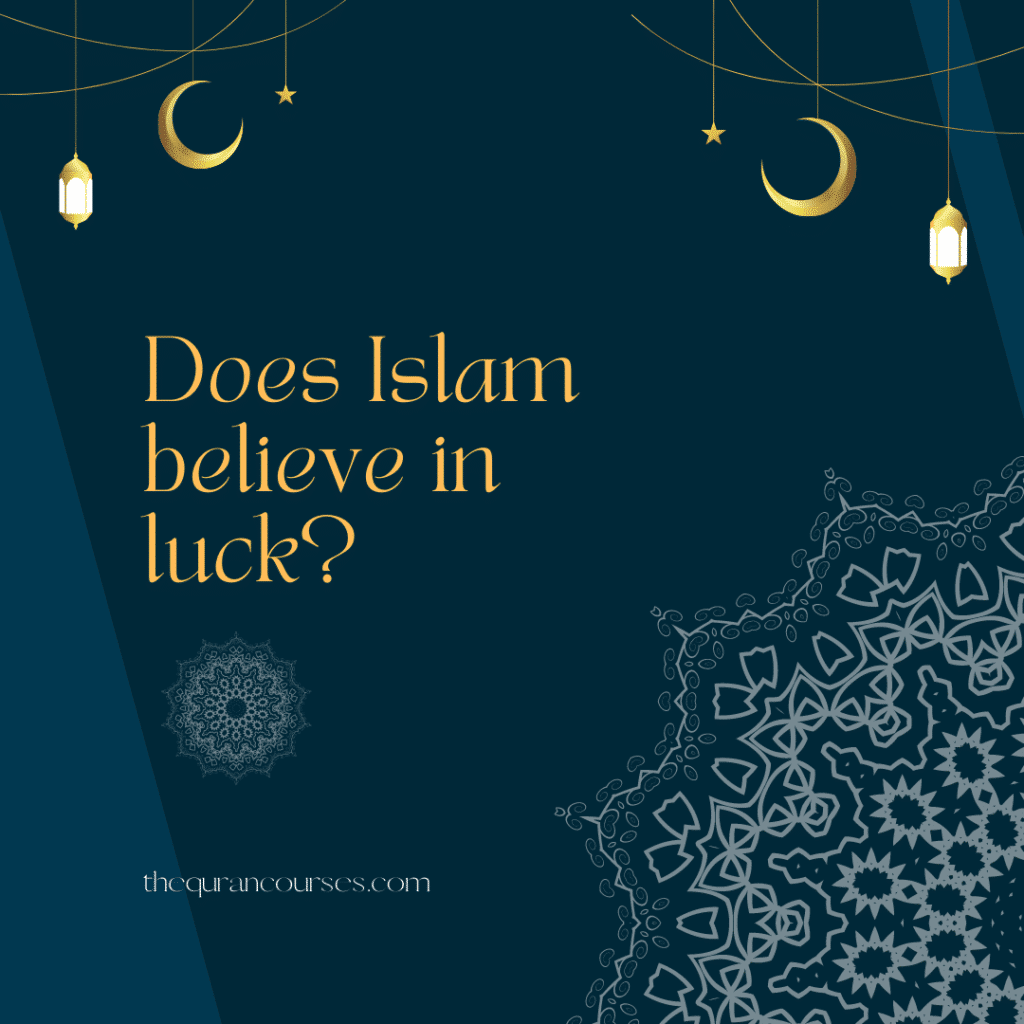Does Islam believe in luck? The core definition of “luck” (hazz) is “a share of good fortune.” The term can also describe luck in general, whether good or bad. The majority of people use it in this manner.
Does Islam believe in luck?
People use expressions like “I had good luck,” “My luck was with me,” “My luck helped me,” and “I was born lucky” with a positive connotation when things are going well, and they are not experiencing any misfortunes. Expressions like “I have no luck,” “I am an unlucky person,” and “If I had luck, I would not be in such a bad condition” when they are facing misfortunes and feel their lives are coming to an end with a negative connotation when they are experiencing troubles and believe their lives are coming to an end People in the neighborhood typically refer to gambling, lotteries, and pools as “chance.”
“take your chance,” and “good luck” are repeated.
But the question here does Islam believe in luck or are these statements permissible in Islam?
To find out about this, we have to read the following paragraphs.
Why might people believe in luck?
Does Islam believe in luck? Although “luck” can be beneficial, it is generally used in a negative context.
The mindset and psychology of someone who relies on and places his hopes in “luck” are enough to convey the core of the idea of luck.
A person who acts on “luck” feels trapped; he believes in chances, and his heart, spirit, and even his life are constantly stressed, agitated, and in turmoil.
If he doesn’t get what he wants or get the outcome he wants, he feels concerned and upset; he becomes dissatisfied and can’t stop himself from being frustrated by the circumstance.
Why would someone in such a scenario surrender to “luck”?
The reason for this is apparent.
Because he does not know the fundamental points of support such as divine determining, reliance on Allah, and consent to their fortune, that person relies on a hypothetical, ambiguous, vain thing such as “luck” as he does not know the fundamental points of support such as divine determining reliance on Allah and consent to their fortune.
Does Islam believe in luck: A legal text to prove the ruling

If someone says “good luck” to describe something that happened to them, such as if something nice happens to them, they say “good luck,” and if something horrible happens to them, they say “bad luck,” there does no appear to be anything wrong with it, in sha Allah.
About Does Islam believe in luck? When anything beneficial occurs, the situation is evident, and it falls within the category of speaking of Allah’s bounties and praising Him for what He has ordained for him.
If he is talking about anything that genuinely happened as it looks to be, to the best of the person’s knowledge, then what appears to be the case is that there is likewise nothing wrong with it.
According to popular belief and belief, it is common knowledge that things might happen in a person’s life that disturbs him and that this is bad luck; Does Islam believe in fate? indeed, it is stated in the shar‘i writings. (Interpretation of the meaning) Allah, may He be glorified, says:
“Say (O Muhammad (blessings and peace of Allah be upon him)): I possess no power of benefit or hurt to myself except as Allah wills. If I knew the Ghayb (unseen), I should have secured for myself an abundance of wealth, and no evil should have touched me” [al-A‘raaf 7:188]
This is also what the terms hasanah (good, good fortune) and sayyi’ah (evil, horrible fate) signify in Ayat like the following (interpretation of the meaning):
“And We tried them with good (blessings) and evil (calamities) so that they might turn (to Allah’s Obedience)” [al-A‘raaf 7:168]
More reviews
About Does Islam believe in luck? Some people may say “good luck” or “bad luck,” thinking that something has happened outside of Allah’s, may He be exalted, decree, or because they believe it is connected to things that have nothing to do with events that occur, such as attributing it to the stars, or numbers, or days of the week, or something similar.
So, if someone claims that such a reason is the source of someone’s good or bad luck, he is mistaken and haraam because Allah has not created coincidence with such things, or anything else, to be the cause of good or evil.
A fatwa issued by the Standing Committee stated something similar when they were asked:
We frequently hear that someone has excellent or poor luck (or is lucky or unlucky).
To what degree is it acceptable to believe in luck – or not?
They responded:
We must believe in Allah’s will and decree.
Thus we must be patient in adversity and thank Allah and laud Him for good fortune.
We should believe that when they were still fetuses in their mothers’ wombs, Allah apportioned provision among His slaves and decided that their life lengths and actions should differ.
Allah, may He be glorified, is most wise in all that He wills and decrees, and every Muslim must attribute what befalls people in terms of blessings and abundant provision to Allah.
May He be glorified, Who bestows it and enables people to attain it and anything else that occurs to Allah’s will and decree.
This falls under a firm conviction in Tawheed ar-Ruboobiyyah (Oneness of Divine Lordship).
The Muslim must avoid anything that might jeopardize his faith and Tawheed.
Therefore, as this is forbidden, he must not ascribe good and blessings and tragedies and disasters to chance or stars. Allah, on the other hand, is a source of power.
May Allah’s blessings and peace descend upon our Prophet Muhammad, his family, and companions.
Does Islam believe in luck: Conclusion

Does Islam believe in luck? There are numerous Ayat others about Does Islam believes in luck.
But in that situation, nothing in his remarks should suggest dissatisfaction with what Allah has willed and determined for him, or negative thoughts about Allah, or attributing evil or horrible fate to Him, may He be exalted.
In Allah’s creation, bad things, evil, and damage are a reality, and they are something that He has ordained would reach His slave according to what He has decreed for that individual.
Allah’s will and decision for His servants are entirely reasonable. Nothing wrong or wicked can be attributed to Him since Allah is exalted and far above all flaws and weaknesses.
Are you know now Does Islam believe in luck or not?!
Join our Quran Courses to learn Quran Arabic and Tajweed online



